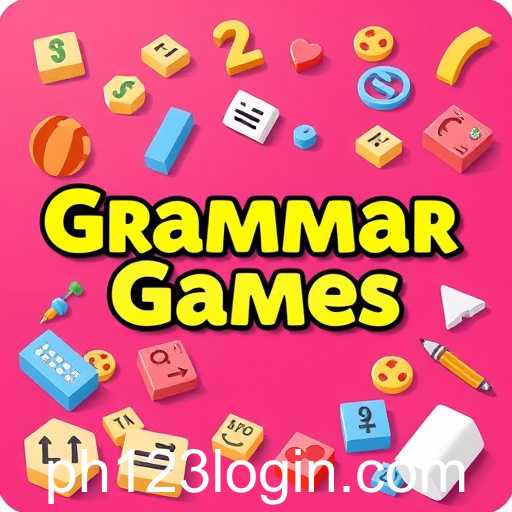Explore how 'Grammar Games' on educational platforms transform traditional grammar learning into an interactive and fun experience, ensuring effective language mastery through engaging play.
Language learning can be a daunting task, but with the rise of digital platforms that make education fun and interactive, it has become an engaging experience for learners of all ages. "Grammar Games" is one such category on an educational website, designed to convert the sometimes tedious learning of grammar into a playful and enriching journey. With the keyword "ph123" serving as an identifier, this category offers a wide array of interactive games that cater to various aspects of grammar, ensuring that learning becomes as enjoyable as playing.
Grammar, often perceived as the dry bones of language learning, is crucial to mastering any tongue. Understanding the structure of sentences, the nuances of tense and aspect, and the idiosyncrasies of syntax are integral components of fluency. However, traditional methods of teaching grammar through rote memorization and repetitive exercises can lead to boredom and disengagement. This is where "Grammar Games" comes into play. By incorporating game mechanics into grammar exercises, learners can enjoy a rich blend of challenge, progress, and entertainment.
Each game in the "Grammar Games" category employs different methodologies to cater to diverse learning styles. There are games that focus on sentence construction, helping learners understand the appropriate order of words. Word puzzle games enhance vocabulary while implicitly teaching grammar rules. Other games might challenge a user’s understanding of verb conjugations or adjective placements in a sentence, often using scenarios that simulate real-life conversations for contextual learning.
Moreover, the integration of points, levels, and rewards in these games aligns with the principles of gamification, a strategy that has been proven to increase motivation and retention in educational contexts. As players progress, they're rewarded with badges, higher ranks, or the possibility to unlock new levels, each designed to progressively increase in difficulty and complexity. This aspect not only incentivizes continuous learning but also provides a sense of accomplishment followed by a measurable progression.
"Grammar Games" also incorporates social elements to leverage the motivational power of community learning. Many games allow players to compete with friends or other users in real-time, fostering a sense of community and healthy competition. Leaderboards and multiplayer modes encourage learners to not only excel individually but also engage collectively, turning grammar practice into a social activity.
Furthermore, the "Grammar Games" category’s adaptability ensures that learners at various levels of proficiency can find appropriate material. Whether a beginner struggling with the basics of subject-verb agreement or an advanced learner looking to finesse complex sentence structures, these games provide dynamic content suited to every need.
In conclusion, "Grammar Games" represents an innovative approach to language learning. By transforming grammar into an entertaining and social experience, this category not only aids in better comprehension but also instills a genuine love for language in its learners. Through immersive and interactive gameplay, "Grammar Games" turns a traditional academic challenge into an enjoyable and rewarding activity.




